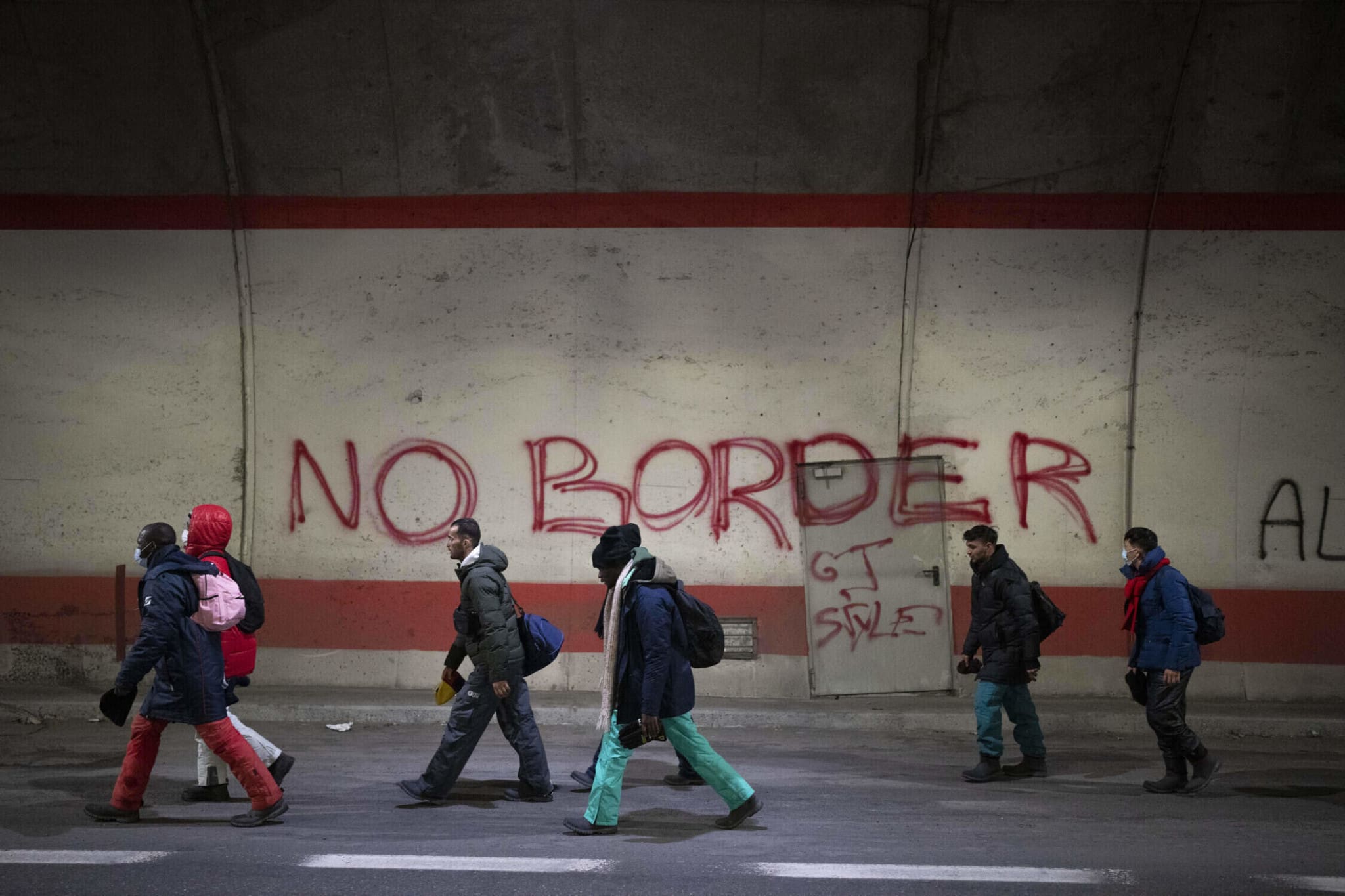All sectors of immigration to France showed the first signs of a comeback last year after a record drop in migratory flows in 2020, statistics published on Thursday revealed.
Asylum applications, deportations and visa issuance all increased in 2021 with first asylum applications rising by 28.3 percent to 104,577 cases, according to provisional data released by the French Ministry of the Interior.
The increase was accentuated by the evacuation of thousands of Afghan nationals from Kabul after the Taliban took power in August last year.
As such, Afghanistan consolidated its position as the main country of origin of asylum seekers in France, with 16,126 applications filed — an increase of 62 percent — far ahead of Côte d’Ivoire (6,268), Bangladesh, and Guinea.
However, the number of applications is still far from pre-pandemic levels when 138,420 first requests were filed in 2019.
France struggles with reception capacities
Even though moderate, these arrivals continue to destabilize reception capacities in France where unsanitary camps reappear at regular intervals.
“We still have two challenges ahead of us: the accommodation of asylum seekers and the accompaniment of refugees towards autonomy, which involves access to employment and housing,” explained Didier Leschi, director of the French Office for Immigration and Integration.
Especially since “in the camps, we continue to witness the continuous arrival of Afghan newcomers,” added Delphine Rouilleault, patron of the France Terre d’Asile association.
“The pandemic has not removed the traditional determinants of refuge migration… That is a reason to think that when the brakes on international travel are lifted, we could move towards pre-pandemic levels,” observed Julien Boucher, director-general of the French Office for the Protection of Refugees and Stateless Persons, in charge of granting refugee status.
Number of deportations also increased
The rise in migration figures also led to an increase in expulsions from France. The total deportations of foreign nationals in an irregular situation rose by 5.5 percent compared to 2020 but remains far from pre-pandemic levels. The number of deportations had halved in 2020 under the effect of Covid-19 restrictions.
With 10,091 deportations, “forced removals” increased by 10.8 percent.
“The fight against irregular immigration continues, in a context that is still very constrained due to the difficulties encountered in organizing travel in times of health crisis: reduced consular activity, difficulty in obtaining consular passes, drop-in air traffic, refusal to submit to the tests,” explained the Directorate-General for foreign nationals in France.
It is because of these difficulties that France announced at the end of September 2021 a drastic tightening of the issuance of visas to citizens of Algeria, Morocco, and Tunisia as France struggles to expel these nationals.
“We will continue to increase pressure on countries that do not want to take back their nationals,” and there will be “other measures for those who do not cooperate,” warned the French interior ministry.
In 2021, however, Moroccans (69,000) and Algerians (63,000) were the nationals who obtained the most visas, while Tunisians ended up fourth.
The number of residence permits issued jumped by 21.9 percent, with 271,675 cases. These numbers do not include the British who have been counted separately.
Relations in the English Channel still tense
Despite tensions between France and Britain, which erupted after the shipwreck that claimed the lives of 27 migrants in the English Channel in November, France granted 96,632 residence permits to Britons.
The situation on the Franco-British border remains tense, however. In 2021, 52,000 migrants attempted the cross the English Channel to Great Britain, of which 28,000 managed to reach the English coast.






